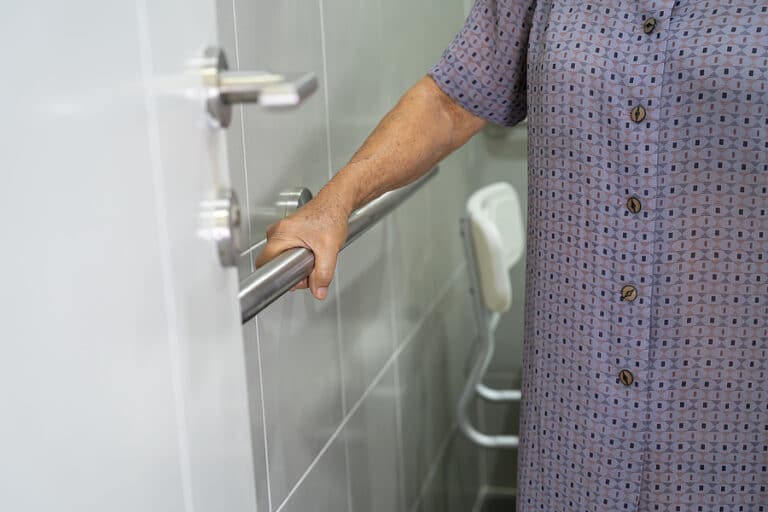Creating a safe and comfortable home environment is crucial for individuals living with Alzheimer’s. Alzheimer’s is often characterized by memory loss, cognitive decline, and behavioral changes, and presents unique challenges in daily life.
As the disease progresses, the need for a supportive and adapted living space becomes increasingly important to ensure the well-being and safety of your loved one. Below are four effective ways to create an environment that caters to the needs of someone with Alzheimer’s, helping them to live as independently and comfortably as possible.
1. Minimize Risks and Enhance Safety
Safety is the most important concern when adapting a home for a loved one with Alzheimer’s. The disease can impair judgment and problem-solving skills, making everyday environments potentially hazardous.
Start by conducting a thorough safety check of the entire home, identifying and mitigating any risks. Install locks on cabinets containing harmful substances, such as cleaning supplies and medications, to prevent accidental ingestion.
Secure or remove tripping hazards, such as loose rugs, and ensure that the home is well-lit to help prevent falls. Safety adaptations might also include installing grab bars in the bathroom, placing gates on stairs, and using door alarms to alert in-home care aides or family if their loved one attempts to leave the house unsupervised.
2. Create a Calm and Predictable Environment
People with Alzheimer’s often thrive in environments that are calm and predictable. Excessive noise, clutter, or unfamiliar settings can be overwhelming, leading to anxiety or agitation. Simplify the living space by decluttering and organizing the home in a logical, straightforward manner.
Keep essential items, such as clothing, toiletries, and eating utensils in easily accessible places to minimize confusion and frustration. Use labels with simple words or pictures on cabinets and drawers to help your loved one identify the contents. Consider incorporating soothing elements into the home, such as soft lighting, comfortable furniture, and familiar personal items that can provide a sense of security and comfort.
3. Foster Independence Through Design
Despite the challenges posed by Alzheimer’s, fostering a sense of independence for your loved one is important for their self-esteem and quality of life. Design the home environment to support their ability to perform daily tasks with as much autonomy as possible. This can include using adaptive devices that make dressing, eating, or bathing easier.
For example, installing lever-style door handles can be beneficial for those who struggle with gripping, and using color-contrasted dinnerware can help individuals with visual perception issues identify food on their plates more easily. Positive Alzheimer’s care aims to simplify choices to reduce decision-making stress, such as arranging a limited selection of clothing in the wardrobe.
4. Support Orientation and Memory
As Alzheimer’s affects memory and spatial orientation, creating a home environment that supports orientation may help reduce confusion and anxiety. Maintain a consistent layout and avoid frequent rearrangements of furniture or belongings, as changes in the environment can be disorienting.
Use large clocks, calendars, and signage around the home to assist with time orientation and identification of different rooms. Positive Alzheimer’s care may also include memory aids, such as photo albums or memory boxes filled with personal mementos, which may also be comforting and help the senior reminisce about positive experiences, supporting emotional well-being.
Proper Alzheimer’s Care May Adapt the Home
Adapting a home for a loved one with Alzheimer’s requires careful consideration of their specific needs and challenges. By enhancing safety, creating a calm and predictable environment, fostering independence, and supporting orientation and memory, caregivers can significantly improve the quality of life for their loved one.
These adaptations not only cater to the physical and cognitive changes associated with Alzheimer’s but also address the emotional and psychological aspects of the disease. In doing so, Alzheimer’s home care providers offer a nurturing environment that respects the dignity and autonomy of the senior, making every day more manageable and comfortable for both the individual and their family.
If you or an aging loved one are considering Alzheimer’s Home Care in Del Mar Heights, CA please contact the caring staff at A Caring Touch Home Care today. Call (619) 344-0528
A Caring Touch Home Care is a Trusted Home Care Agency providing exceptional home care in Coronado, Del Mar/Del Mar Heights, Bonita, East Lake, La Jolla, Torrey Pines, Mt. Helix/La Mesa, Carlsbad, Oceanside, Carmel Ranch, Rancho Penasquitos, Point Loma, Rancho Santa Fe, San Diego and surrounding areas.
- A Night of Powerful Storytelling: San Diego Latino Film Festival & “Arranca” - March 27, 2025
- The Importance of Consistency When It Comes to Eating - March 24, 2025
- Why Your Senior Parent Needs Help At Night - March 7, 2025







